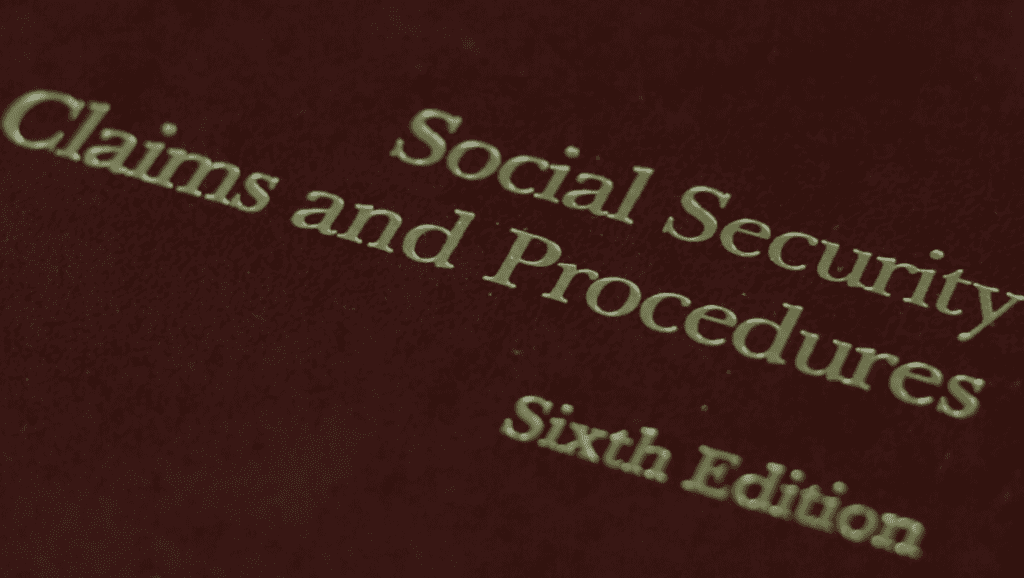
Table of Contents
- Differences Between the State, Federal, and the Administrative Appeal Processes
- Administrative Level: Reconsideration
- Administrative Level: Hearing With an Administrative Law Judge
- Administrative Level: Appeals Council
- Federal Level: Review on Appeal
- How Burnett Law Can Help You
Has your or a loved one’s social security disability (SSD) claim been denied? If so, you should contact an attorney who has experience with social security disability as soon as you can. But because your claim has been denied, you may be wondering what the appeal process is and if you would be able to appeal your claim.
Differences Between the State, Federal, and the Administrative Appeal Processes
In the United States, State courts sit under Federal court, which sit above administrative processes. If your claim is denied, an attorney should file paperwork to appeal your claim. But where does this appeal begin?
Social security disability claims begin at the administrative level, which means they go through an agency, the Social Security Administration. Because social security is a federal benefit, there is not a part of your claim that goes through the state level. Ultimately on appeal, at the top, your claim could go up to the federal court level.
Administrative Level: Reconsideration
First, in the appeal process for your security disability claim is to file for reconsideration. What reconsideration does is request a review under the Disability Determination Services office where a medical expert who was not part of the original claim decision will review your claim.

In some cases, further proof or records can be presented on your behalf. Types of records that could be presented for your security disability claim could be statements from your doctors or medical test results—to name a few. The most important records that you could present would include particular reasons that prove the original dismissal of your claim was wrong.
In other cases, sometimes a reconsideration may occur because your original claim was dismissed because your medical needs have improved or during the original process you did not cooperate effectively. This level would be heard at a hearing with a disability hearing officer. Although you are not obligated to be in person at this reconsideration hearing, it can be recommended to be in person so you can explain your case yourself, or with your attorney’s guidance.
Overall, around five to ten percent of claims are successful at the reconsideration administrative level, which is why having an attorney to help advise your claim can be crucial.
Administrative Level: Hearing With an Administrative Law Judge
If your appeal was denied at the reconsideration administrative level, the next step is to appeal within sixty days in order to have a hearing with an administrative law judge.

This hearing typically takes place within seventy-five miles of your home with an administrative law judge who is an attorney under the Office of Hearings Operations. In some cases, you may be able to attend your hearing via a platform like Zoom. The administrative law judge will not have had any level of participation in the original decision on your security disability claim. The administrative law judge will typically ask a variety of fact gathering questions related to your disability, medical records, work history, and your daily life.
Overall, around fifty percent of claims heard at the administrative law judge hearing level are granted.
Administrative Level: Appeals Council
If your appeal was denied at the administrative law judge hearing level, you can request a further review from an Appeals Council. The Appeals Council selects cases to review at random, and then from those cases the Appeals Council will grant, deny, or dismiss the appeal. In order for your case to be heard, the Appeals Council must find that either (1) the administrative law judge at the hearing level before made a legal error or abused their discretion, (2) that there was not enough evidence to support the decision, or (3) that a circumstance within your case involves a large issue of procedure or policy.
If the Appeals Council determines your appeal did not have one of the three conditions above, your case could be dismissed without any further review. However, the main importance of completing an appeal at this level is so you are able to move on to an appeal at the federal level, explained below.
Overall, less than three percent of claims are successful at the administrative Appeals Council level.
Federal Level: Review on Appeal

Once you have appealed through the first three processes on the administrative level with the Social Security Administration, then you have officially “exhausted” the administrative processes. Only now can you take your claim to federal court, first starting in a United States District Court.
At this level you will need an attorney, if you did not already have one. Bringing your claim in court can be complex and costly.
Overall, about one percent or less of cases are successful at the federal appeal level.
You May Also Read: What to Think About Before Calling an Attorney for an SSD Claim
How Burnett Law Can Help You
Has your or a loved one’s social security disability claim been denied? If so, you should contact an attorney who has experience with social security disability as soon as you can. Although the recommended step is to contact an attorney as soon as you can, Burnett Law is here to help you at any stage.
Burnett Law is here to help you from start to finish during your social security disability claim.
Contact Burnett Law today for a free consultation: (931) 484-7549. Find out more information at: https://crossvilleattorney.com/. We service our clients throughout Cookville, Crossville, the Cumberland Region, Roane, Fairfield Glades, and East Tennessee.
Disclaimer: The information contained in this blog or on this website is provided for informational purposes only, and should not be construed as legal advice on any specific subject matter. No person should act or refrain from acting due to any content included in the site without seeking legal or other professional advice on the particular facts and circumstances at issue from an attorney licensed in the person’s state. The Firm expressly disclaims all liability in respect to actions taken or not taken based on any or all the contents of this blog or website.
